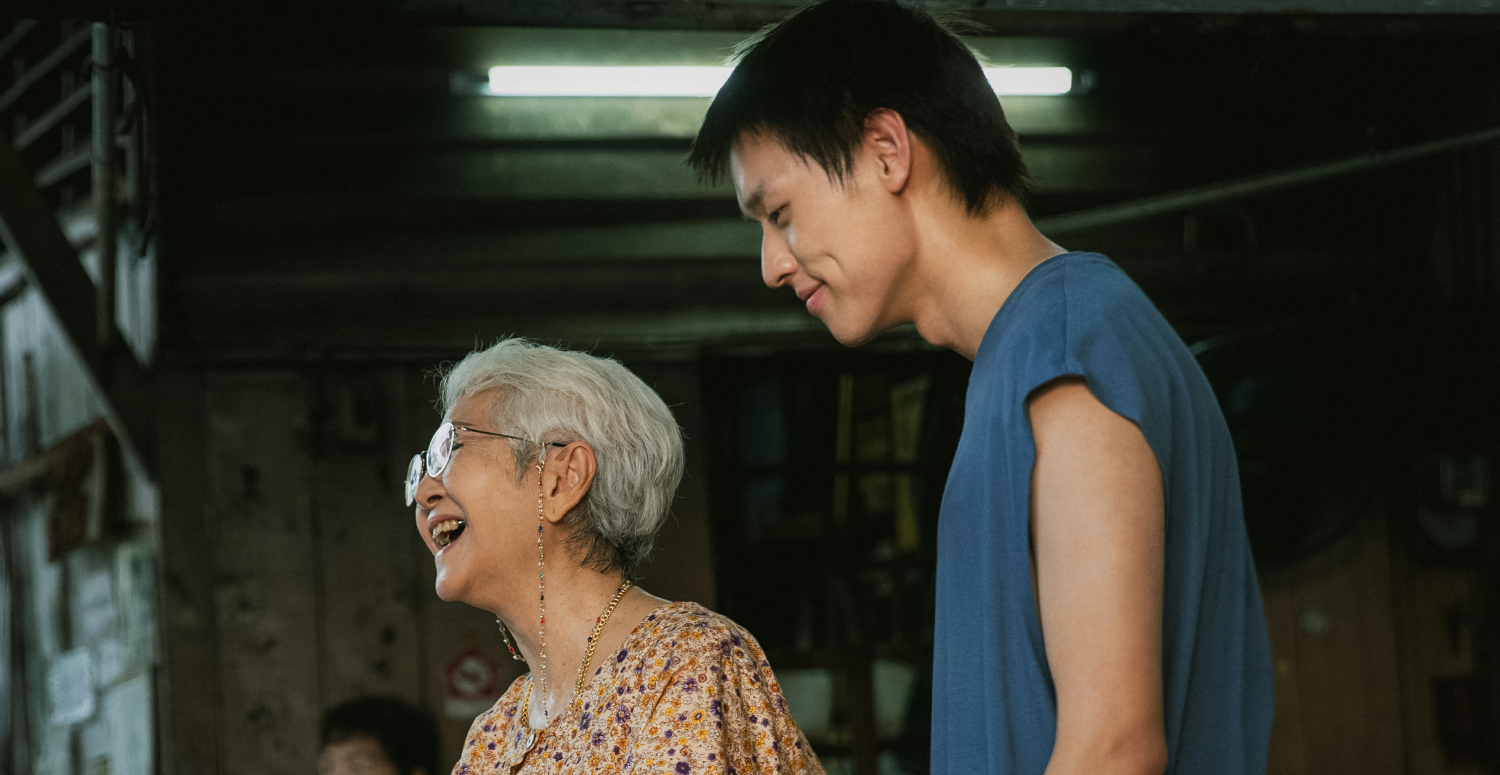Comment devenir riche
(grâce à sa grand-mère)
หลานม่า – Lahn Mah
(How to make millions before Grandma dies)
Best Picture, Director & Screenplay – Thailand
Best Actor & Actress – Thailand
Best Cinematography, Editing & Score – Thailand
2024/2025

FR EN
Au succès devenu viral sur les réseaux sociaux, « Comment devenir riche (grâce à sa grand-mère) », ou « Lahn Mah » en thaï, vient à peine de sortir en France et il vaut clairement le détour ! Comédie dramatique (quoique plus dramatique que comique) familiale, le long-métrage thaïlandais émeut autant qu’il invite à réfléchir sur nos rapports avec nos ancêtres, notre finitude et notre héritage.
Le jeune M, vivant encore chez sa mère, tire-au-flanc et souhaitant se faire de l’argent facile, découvre par une cousine qu’il « suffit » d’aider assez longuement un proche mourant afin de figurer sur la première ligne du testament. Or, il se trouve, tragiquement, que sa grand-mère Mengju vient de se faire diagnostiquer un cancer de l’intestin au stade terminal. M décide alors, de façon vilement intéressée, de s’installer chez elle. Mais sa relation avec sa grand-mère va considérablement évoluer.
Sensiblement touchant, « Lahn Mah » est un long-métrage qui verse certes dans le pathos avec de jolies compositions au piano, mais la force des dialogues, des regards et des réactions des membres de cette famille sino-thaïe (la grand-mère, les trois enfants très différents et le petit-fils faussement modèle) dressent un tableau attendrissant de la société thaïlandaise, tiraillée entre modernité aliénante et tradition vieillissante dans une Bangkok à plusieurs vitesses.
Mais outre cette photographie complète de ce Siam contemporain, le film demeure avant tout une histoire de progressives retrouvailles entre une grand-mère malade et son petit-fils manquant de confiance en lui. « Lahn Mah » rappelle ainsi que la solitude dont souffrent nos deux héros est née de leurs écarts inter-générationnels qui sont cependant bien moins forts que l’on ne le pense, surtout lorsque chacun veille l’un sur l’autre. Et malgré le gris ou le manque de lumière des lieux où ils se tiennent compagnie, M et Mengju retrouvent peu à peu le bonheur de se sentir aimés à leur juste valeur – autre que pécuniaire. C’est une histoire belle et poignante où tout le monde s’identifiera forcément. À voir unanimement.
Axel Chevalier
With success gone viral on social networks, “How to make millions before Grandma dies”, or “Lahn Mah” in Thai, has only just been released in France, and it’s clearly worth a watch! This is a dramatic family comedy (albeit more dramatic than comedic), which is as moving as it is thought-provoking about our relationship with our ancestors, our finitude and our heritage.
Young M, still living with his mother, a lazy slacker who wants to make some easy money, discovers from a cousin that it’s “enough” to help a dying relative for long enough to appear on the first line of the will. Tragically, her grandmother Mengju has just been diagnosed with terminal intestinal cancer. M then decides, in a vilely self-motivated fashion, to move in with her. But his relationship with his grandmother is about to change dramatically.
“Lahn Mah” is a sensitively touching film which, although it veers into pathos with some pretty piano compositions, the strength of the dialogues, the looks and the reactions of the members of this Sino-Thai family (the grandmother, the three very different children and the deceptively model grandson) paint a touching picture of Thai society, torn between alienating modernity and aging tradition in a multi-speed Bangkok.
But beyond this comprehensive snapshot of contemporary Siam, the movie is above all a story of the gradual reunion between a sick grandmother and her self-confident grandson. “Lahn Mah” is a reminder that the loneliness suffered by our two protagonists is born of their inter-generational gaps, which are however much smaller than one might think, especially when each is looking out for the other. And despite the gray or lack of light in the places where they keep each other company, M and Mengju gradually rediscover the happiness of feeling loved to the full – other than pecuniary. It’s a beautiful, poignant story with which everyone can identify. A must-see for everyone.
Axel Chevalier

